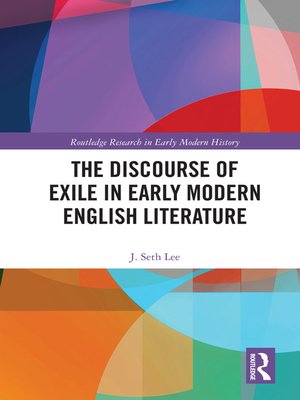The Discourse of Exile in Early Modern English Literature
ebook ∣ Routledge Research in Early Modern History
By J. Seth Lee

Sign up to save your library
With an OverDrive account, you can save your favorite libraries for at-a-glance information about availability. Find out more about OverDrive accounts.
Find this title in Libby, the library reading app by OverDrive.



Search for a digital library with this title
Title found at these libraries:
| Library Name | Distance |
|---|---|
| Loading... |
This volume examines the literary works of English exiles seeking to navigate what Edward Said calls "the perilous territory of not-belonging." The study opens by asking, "How did exile impact the way an early modern writer defined and constructed their personal and national identity?" In seeking an answer, the project traces the development of the "mind of exile," a textual phenomenon that manifests as an exiled figure whose departure and return restructures a stable, traditional center of socio-political power; a narrative where a character, an author, a reader, or some combination of the three experiences a type of cognitive displacement resulting in an epiphany that helps define a sense of self or national identity; and narratives that write and rewrite historical narratives to reimagine boundaries of national identity either towards or away from exiled groups or individuals. The study includes case studies from a variety of authors and groups – Geoffrey Chaucer, Edmund Spenser, the Wycliffites, the Marian Exiles, and their Elizabethan Catholic counterparts – to provide a clearer understanding of exile as an important part of the development of a modern English national identity. Reading exilic texts through this lens offers a fresh approach to early modern narratives of marginalization while examining and clarifying the importance of the individual experience of exile filtered through literary consciousness.







